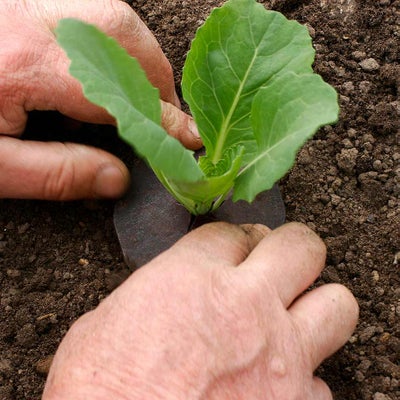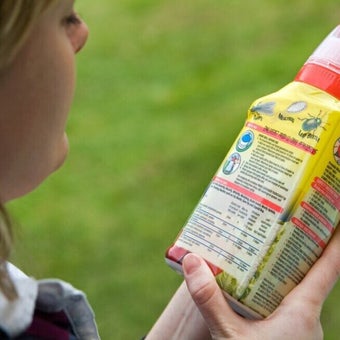
Quick facts
Many pest and disease resistant varieties of fruit and veg are available to gardeners
The ‘no dig’ method is suitable for organic growing
An organic garden relies on good soil health
Most ‘conventional’ gardeners can find ways to cut back on using pesticides
Why garden organically?
Conserving natural resources and avoiding pollution and health hazards are important elements in the concept of . A fundamental feature is reliance on manures and fertilizers derived only from animal or plant remains.
Organic gardening is a proven way of gardening well and which avoids the use of practices, for example about which some gardeners have misgivings.
Challenges
Avoiding manufactured inorganic substances for garden plants brings challenges and problems:
- Alternative treatments often involve more expensive or less readily available resources
- Some may be less effective with consequent loss of yield and quality
- Some may involve techniques which are not visually appealing to everyone
- There is a need for special effort to acquire a good understanding of the wildlife in gardens, both friends, foes and neutrals, their life-cycles and requirements
- Extra time may need to be allocated for planning, preparation and vigilant maintenance – spotting problems before they get out of hand
However where plants’ requirements for steady growth are met, including choice of site, timing of planting or sowing, soil preparation, nutrition and watering, the occurrence of damaging attacks by pests, diseases and other disorders is less likely and less damaging.
Successful gardening following organic principles therefore requires a dedicated and informed approach. Many gardeners find this challenge rewarding, or at least a cost worth paying for avoiding potentially harmful practices.
Soil fertility
involves feeding the soil which in turn supports healthy plant growth, as opposed to directly feeding plants themselves. All possible steps should be taken to develop or improve and maintain soil fertility, except in special instances such as sites intended for the establishment of wild flowers.
Maintaining a fertile soil the organic way
- Garden compost and other organic manures are the basis of feeding the soil
- Green manuring is used to improve soil structure and fertility, and prevent loss of in winter
- Bulky organic manures may provide insufficient nutrients for demanding fruit and vegetable crops. In such cases supplementary organic fertiliser may be needed
- Liming is permitted for organic growing
The above practices are not exclusive to organic gardening, but they are important features.
Undisturbed soil favours many beneficial soil-inhabiting organisms, and no-digging is often favoured by organic gardeners as in some cases it preserves soil structure and reduces moisture loss by evaporation, but it does require extra skill. Digging allows incorporation of bulky organic manures and lime, as well effective weed control.
Pest and Disease control
Good growing conditions protect plants from many pests and diseases:
- Good soil fertility is essential – see above
- Timely watering is important
- Club root disease of brassicas thrives on acid soil
- Scab of potatoes is especially prevalent on alkaline soils
- Powdery mildews are worse where soils are dry
- Raising plants in cells or pots promotes rapid establishment
- Timely sowings to avoid insect activity (e.g. swedes sown after May dodge the main egg-laying period of cabbage root fly)
- Crop hygiene; cutting out fruit tree canker for example, and destroying vegetable crop residues before replanting
- Physical barriers exclude pests; insect-proof mesh to exclude root pests of vegetables
- Pheromone traps – codling moth for example
- Interplanting with clover has been shown to reduce cabbage pests
- Biological controls are especially valuable
- Crop rotation ensures better results
- Careful plant spacing promotes airflow reducing diseases
- Excessive nitrogen leads to more pest and disease problems
- Resistant cultivars are especially suited to
Using ‘organic’ pest and disease controls
When their use is essential certain pest and disease control materials that are derived from animal or plant materials are often considered acceptable in organic growing. These have short persistence and low toxicity to birds and mammals. Even these relatively benign substances must, by law, be used as directed on the label.
Weed control
Chemical weedkillers can greatly ease controlling infestations of pernicious weeds, but are unacceptable in .
Organic weed control options
- Cultivation, including , is a potent killer of annual weeds, and if repeated can destroy weeds
- Meticulous forking out of weeds
- Flameguns can be effective in some situations, such as paths, where there is no threat to garden plants and wildlife
- Prevention of seed dispersal is most important
- Mulching with deep layers (5-8cm) of organic matter prevents annual weeds
- Black sheeting including materials prevents annual weeds, and after at least one growing season, perennial weeds. Ground cover plants can also prevent weeds
Without the fallback of potent weedkillers it is advisable to tackle the problem before heavy infestations develop.




